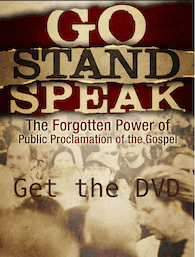Q) Who are some of the Founding Fathers that have been omitted from our history books?
David Barton:
(O)f the 56 individuals who signed the Declaration of Independence, 27 had seminary degrees. … That’s fairly impressive. I mean, that’s like saying the U.S. Congress today is made up of half pastors. That’d blow our mind, but that’s the way it was back then. Well, the Rev. Dr. Witherspoon here is responsible for two American translations of the Bible.
… (I)n 1789, when the Constitution was ratified, the very next two years consecutively — 1790, 1791— Morris authored two works on the Constitution. You know what he told us? He said, “Religion is the only solid basis of good morals. Therefore, education should teach the precepts of religion and the duties of man toward God.” Now that’s nowhere close to the national policy we have today, but then again, what does he know? He just wrote the Constitution.
This is the irony of not knowing our own heritage, not knowing what was in our background, not knowing what the intent was.
…
He starts out by saying, “You cannot separate God’s law from civil law. Those two things are inseparable. Human law must rest on that which is divine.” He says, “Far from being rivals or enemies,” he said, “religion and law are twin sisters. They’re friends; they’re mutual assistance. Indeed, these two sides just run into each other.”
That’s a great description of where we are today, a word description, because today, they do run into each other. It’s like a head-on collision.… Today law and religion are enemies. They don’t get along, but back then, they were like two yoke of oxen, pulling in the same direction, never to be separated.
Another Founding Father I have a lot of fun with, because he speaks to a very contemporary issue is this man, William Samuel Johnson, signer of the Constitution. … Johnson was not only a signer of the Constitution; he was one of America’s leading educators. He’s the first ever president of Colombia College in New York. [It] still exists today. And as a leading Founding Father, as a prominent educator, he was very often asked to address public school graduations.
…
“Students,” he said (at one graduation), “you this day have received a public education, the purpose whereof has been to qualify you better to serve your Creator and your country. …Now, you are sensible. …Your first duty is you were sensible of those you owe to heaven, to your Creator and to your Redeemer. Let these be ever present to your minds and exemplify it in your lives and conduct.” And for the rest of his oration, he went through specific Bible verse after specific Bible verse. The very next one he used, he said, “Students, we are told in Acts 17:28, that in Him, we live and move and have our being.” He said, “I want you to remember that apart from Jesus Christ, you can do nothing in your life.” And he went that way for verse after verse after verse.
Now I guess it’s unfortunate that somebody didn’t tell him that what he was doing was unconstitutional. I guess he just didn’t realize that. You see, this is the irony. If we did the exact same religious practices of those who gave us the document, today they’d be struck down under that same document, supposedly by their authority.
Now how has this come to be? Well particularly in the last three decades, we’ve really seen that the changes in textbooks, and in the rhetoric, etc. And we’re told basically, that America is a secular nation, created on a secular document by secular people, who wrote that secular document and that’s why it’s to remain secular today. And that’s why we’re not supposed to have this public religious expression.




comments
0 Responses to "Independence and Liberty – America’s Christian Heritage"Post a Comment